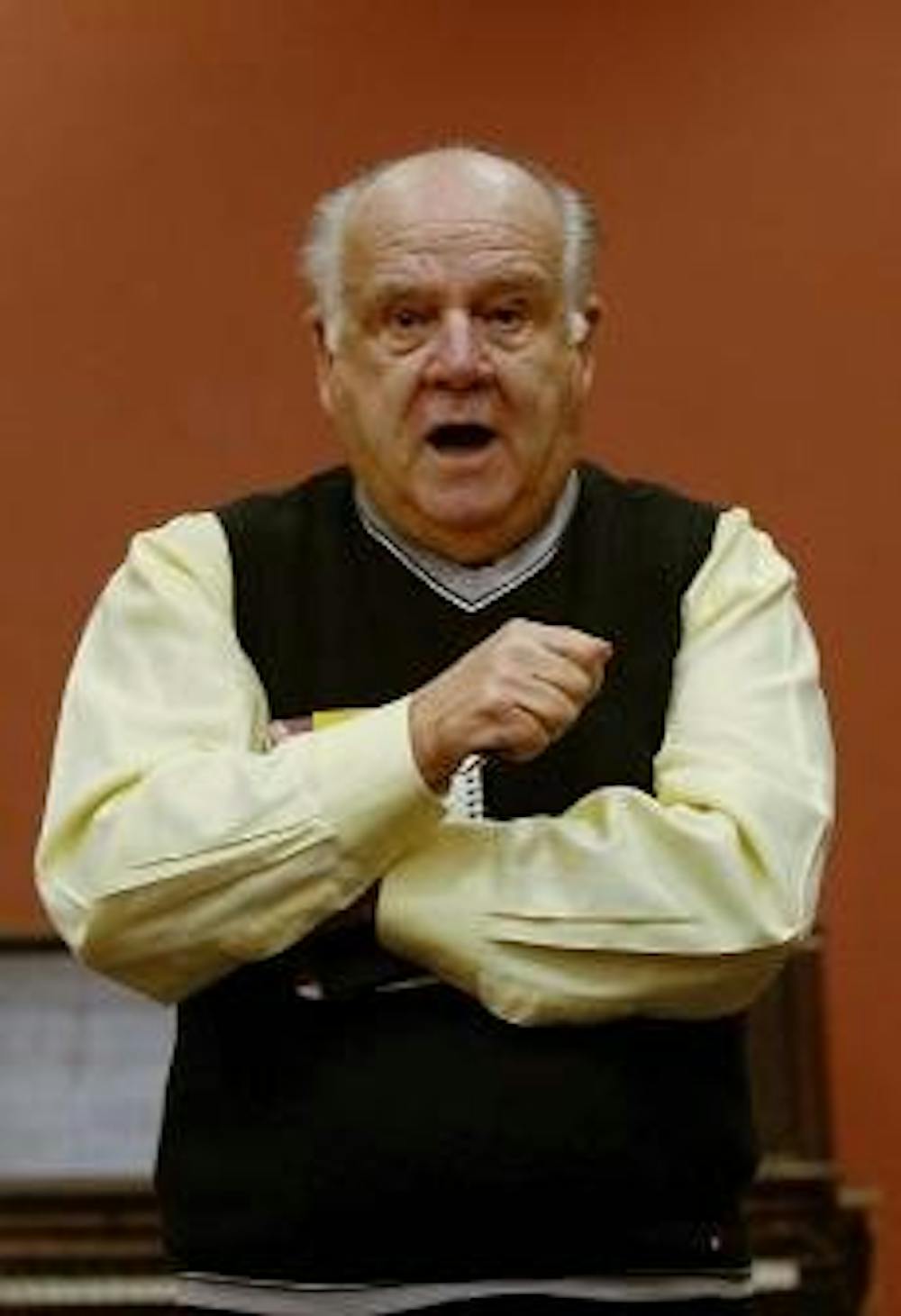Without the surgery, her heart would stop. But Esther refused because it just wasn't kosher - literally.
As an Orthodox Jew, Esther deemed a pig-valve replacement unkosher, and the world watched as everyone's favorite surgical interns scrambled to find an appropriate alternative.
She was, after all, a patient in one of the most well-known hospitals in the country: Seattle Grace of Grey's Anatomy fame.
Rabbi Gerald Wolpe, a senior fellow emeritus at the Penn Center for Bioethics, used scenes from this first-season episode of Grey's as a jumping point from which to examine the interplay between Judaism and bioethics at a talk at Hillel last night.
Wolpe started by pointing out the factual errors of Esther's dilemma, the primary one being that there is, in fact, no dilemma at all.
Despite her dramatic declaration of faith, the surgery would be completely allowed within Jewish law. It would only be unkosher if the doctors forced her to eat the pig valve before the surgery, Wolpe joked.
In the end, however, heightened drama won out over accuracy, as it so often does with scripted medical dramas, said Wolpe, who has been consulted by Grey's producers on several different plotlines, specifically those dealing with the impact of death on medical students.
Wolpe went on to discuss broader issues of bioethical concern, such as abortion and how to define death, in the context of Jewish belief.
For example, he explained that "the stem-cell controversy does not exist in Judaism" because in Jewish law, cells of a fetus have no status once outside the womb.
Dalia Levine, a Chemical Biomolecular Engineering graduate student, said she was fascinated by the connections Wolpe drew between bioethics and Judaism.
"It's interesting that religion plays such a role in science and society, even if you want to separate the two," Levine said.
Looking to the future, Wolpe expects the face of bioethics to change with increasing rapidity.
"I always say that medical technology is like Boston weather," he said. "If you don't like it, just wait a minute."
But, he continued, Judaism will always have an answer for how to deal with the ever-changing medical world.



